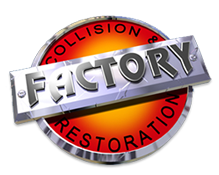 If you haven’t been in an accident before, the process, from collision to paid and repaired vehicle, can seem confusing. We’ve put together a simple list to help un-complicate the process for you.
If you haven’t been in an accident before, the process, from collision to paid and repaired vehicle, can seem confusing. We’ve put together a simple list to help un-complicate the process for you.
The Accident
At the accident, make sure you do the following:
● Take photos of the scene, preferably before any of the vehicles have moved. If possible, you should clear the road soon after.
● Make sure everyone is okay. Call an ambulance.
● Exchange contact and insurance information with the other driver. This includes name, address, phone number, email address, insurance name and policy, etc.
● Contact the police. Get witness contact information and statements – the police may do this.
● Give your insurance company an unbiased account of what happened.
Towing
If your car is badly damaged, it may not be drivable after the accident. If you need a tow, it saves time and money to already have a repair shop selected. Remember – you don’t have to go to the shop your insurance company suggests! They are obligated to work with any repair shop of your choosing.
Estimates
An estimate will give you an approximate cost for repairs to your vehicle. Your insurance company may decide that your car is totaled if the cost of repairs is more than the value of the vehicle. An estimate shouldn’t take long, and you shouldn’t need an appointment.
Repair Appointment
Once you, the repair shop, and the insurance company have agreed on repairs, you can schedule a repair appointment at the shop of your choosing. You’ll have to sign a form to authorize the repairs, and you may owe your insurance company a deductible depending on your policy.
The cost of repairs will depend on the insurance policy you have. Damages caused in the accident should be covered by a collision policy. If you’re in a state that assigns fault and the accident was your fault, you will need collision coverage to cover the cost of your vehicle and not just the other vehicle. If the accident wasn’t your fault, the other party’s insurance company should pay for your repairs. If their insurance doesn’t cover enough, or if the other party doesn’t have coverage, you’ll need to pay out of pocket or have an uninsured/underinsured motorist package included in your policy. Check with your insurance company if you aren’t sure. Your insurance policy may also cover a rental car during repairs, but it depends on the policy you have.
Car Pick-Up
Don’t be afraid to ask questions about your repair. When you pick up your car, it should be in the same condition it was in prior to the accident.

Recent Comments